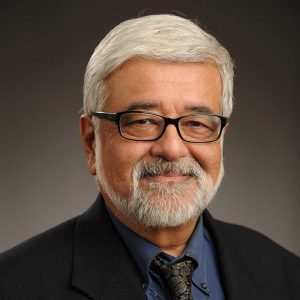The degree taps expertise from across the University, including the Graduate School of Social Service and Fordham School of Law. Befitting that multidisciplinary approach, the degree program is hosted in the Graduate School of Arts and Sciences and headed by Falguni Sen, Ph.D., professor of business at the Gabelli School of Business.
“People are beginning to understand that health care is not something that is just owned by business, or regulatory services, or social service people, or by ethics experts,” said Sen, who heads the business school’s Global Healthcare Innovation Management Center. “It’s something that everyone has to come together to really deliver.”

Sen said the 12-month degree program is meant to appeal to the burgeoning field of mid-level practitioners with titles like care coordinator, case manager, hospitalist, physician assistant, information technology assistant, nurse practitioner or medical entrepreneur.
The field is also drawing liberal arts undergraduates looking to join a growing sector of the economy. “They may never have to create a balance sheet but since they’ll be tasked with putting into action many of the changes under health care reforms, it’s important that they’re able to read one,” Sen said.
That’s because even though the industry has embraced “patient-centric care,” it still operates from a surplus-generating business model, he said. Those two models—one focused on doing whatever it takes to keep a person healthy and another with an eye on the bottom line—need to be balanced delicately.
“Ideally, we can achieve proper health care if we can bring together the clinical model and the business model to focus on patient centric care” Sen said.
“This master’s degree will help you understand how to make your organization work for both of these models.”
Of the 14 courses required for the degree, nine are brand new. They include Strategy and Operations in Health Care, Behavior Health, Patient-Centric Care, Population Health, Public Health and Outcome Measures, and Negotiating and Communicating in Health Care.
In the growing field of electronic health records, Sen hopes the new master’s degree will close training gaps among longer-term health care workers.
“We’re not going to make people IT experts or teach them how to create new systems, but we can teach them how to use the systems properly and not be intimidated by them,” he said.
Sen said that other big shifts are underway in the field. Health care companies are looking to increase ways to measure patient satisfaction. They are moving toward “value-based payments,” in which insurers place a higher premium on the quality of treatments over quantity. And they are improving transitional care, which takes into account how patients fare when they return home or their community or are moved to nursing or long-term care .
“These changes are here to stay, and I don’t see anything in the new plans being debated in Washington that will stop them,” Sen said.
“Will we have a greater number of uninsured people who will put a serious strain on hospitals? That’s a possibility, and those are serious issues that are being debated. But these administrators will be in demand and expected to perform.”

